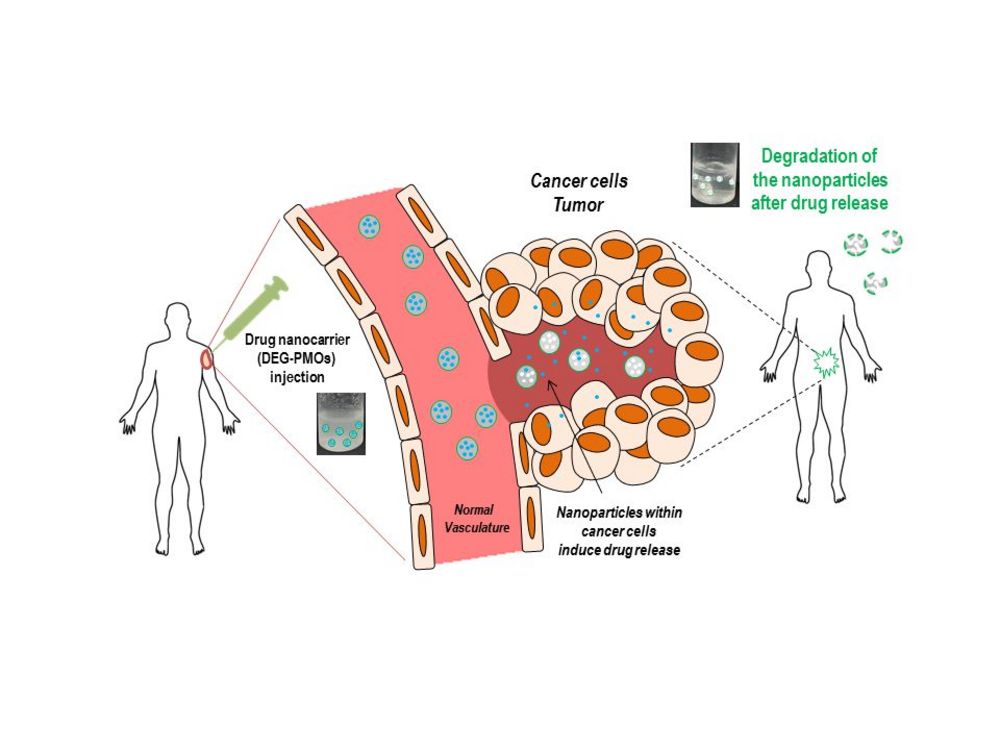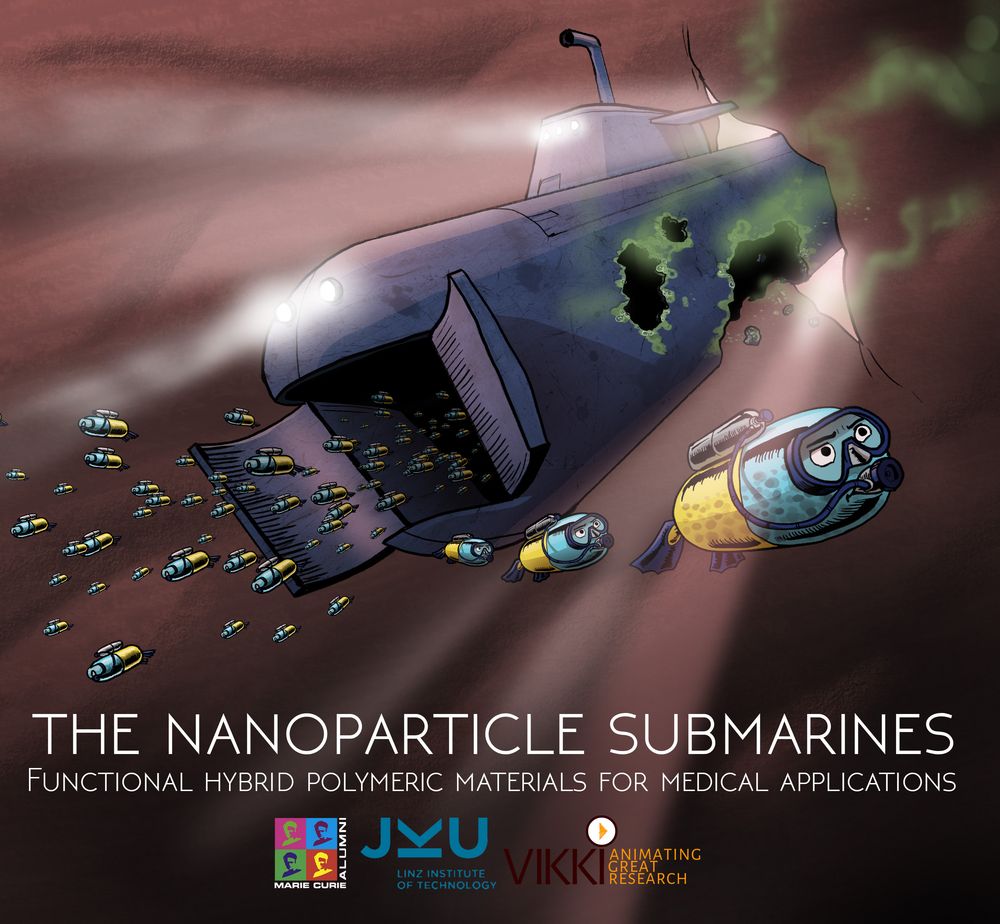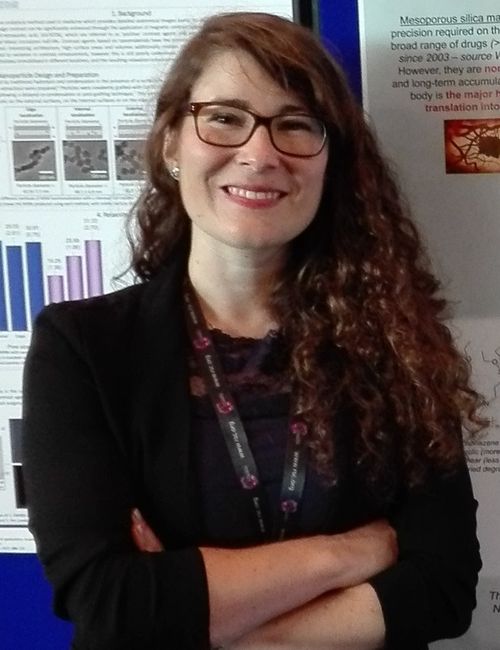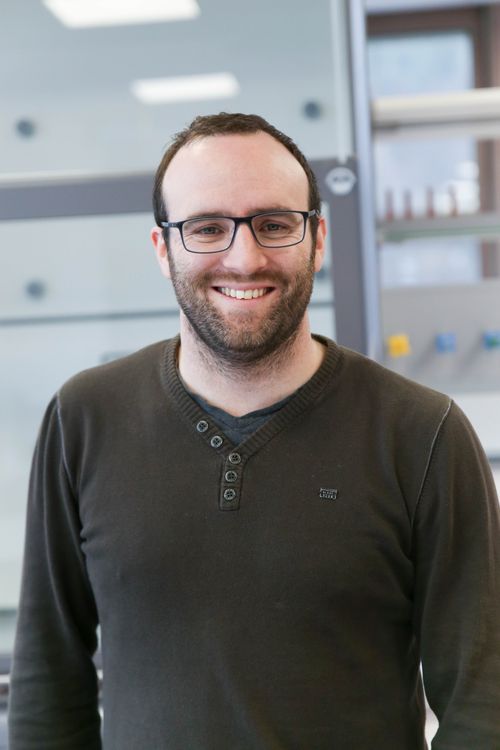Cancer Therapy with no Side Effects
Once cancer has metastasized in the body, the fight becomes difficult and treatment involves chemotherapy. Chemotherapy, however, also attacks healthy cells and has numerous side effects. By using special nanoparticles, it is possible to transport the medicine directly to the cancer cells and affect only those cells. Dr. Yolanda Salinas is currently developing the nanoparticles and they must have very specific properties.
Project Details
Young Career Project
Project Manager
Yolanda Salinas
Call
2/2016

If, in 1966, somebody told Isaac Asimov that the “Fantastic Voyage” could ever become reality, I am sure he would have laughed at the idea. However, great science fiction writers’ visions are todays inspiration for many new amazing scientific advances, which were once so impossible to imagine. Like something from a book, we are developing nanoparticles that specifically transport medicine through the human body. This nanomaterial could act as a submarine that is introduced into tumour tissue, and under specific pathogenic conditions may lead to the aperture of their molecular gates releasing drugs to attack and destroy cancer. At the same time, these submarine nanoparticles could have the capacity to be dissolved or degraded into harmless products and thus avoid undesired side-effects. These degradable hybrid nanomaterials made of silica and phosphazene-based polymers are being prepared at the Institute of Polymer Chemistry and funded by the Linz Institute of Technology (JKU) as a Young Career Project awarded to Dr. Yolanda Salinas (Principal Investigator) since 2017.

These nanoparticles are composed of silicon and polyphosphazenes, which are known to degrade into harmless products. They resemble tiny spheres (ca. 100 nm) covered with small holes (pores), which open to the outside under control. Any desired medication can be placed in these holes, which are then closed off at the surface with a “pore blocker”.
What makes these nanoparticles special is that, because of their chemical composition, they can be broken down inside the body, being eliminated without leaving any traces.
Together with Dr. Ian Teasdale, Salinas is now searching for the optimal composition of the nanoparticles to close off the pores. The nanoparticles must remain intact in the bloodstream until they transport the medicine to the body's metastases and have "released" the medicine. The cancer cell's special ph-values (usually more acidic than other environments in the human body) are triggered. Only then can the particles dissolve.
“Using silica nanomaterials that can break down is a completely new approach,” says Salinas, “and it can be further developed in different directions for very different applications.”
The goals of the LIT project are first to optimize preparation of the nanoparticles in the lab, and then to show that the particles can degrade properly.
Dr. Yolanda Salinas was graduated as Chemical Engineer in 2008 at the University of Valencia, and she finished her PhD in Chemistry in 2013 at the Polytechnic University of Valencia (Spain), based on nanoparticles for optical recognition involving supramolecular interactions. There she got experienced in the characterization of nanomaterials including functional silica mesoporous nanoparticles, which is one of the main topics of this project. A Marie Curie postdoc enabled her to work in cancer research at the Queen Mary University of London (UK). Since 2015 she is university assistant at the Institute of Polymer Chemistry (JKU) working with new functional materials for biomedical applications.

The other member of the research team, Dr. I. Teasdale, is a worldwide recognized expert in the synthesis and characterization of degradable polyphosphazenes, and their application in drug delivery. He studied chemistry at the University of Sheffield (UK) and Heidelberg University (Germany), graduating with an MChem in 2004. In 2008 he received a PhD in chemistry from the University of Manchester (UK) for his work on the synthesis of high performance polymers. In 2014 he completed a habilitation in synthetic polymer chemistry. A promotion to associate professor followed with an ongoing research focus on inorganic and degradable polymers.
